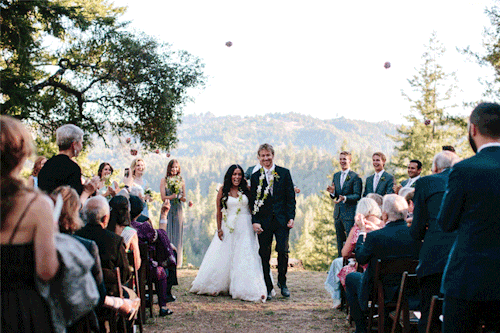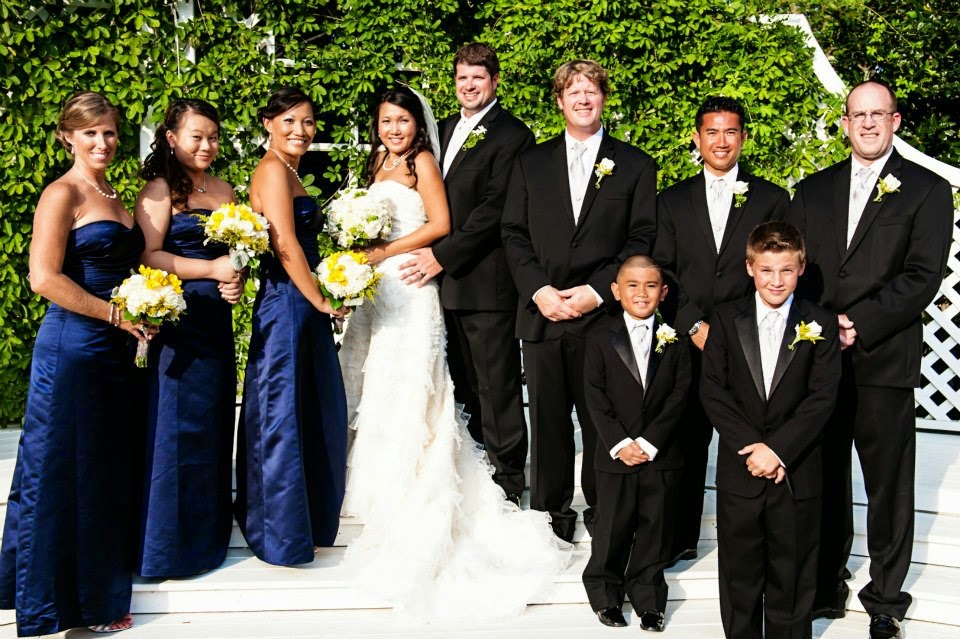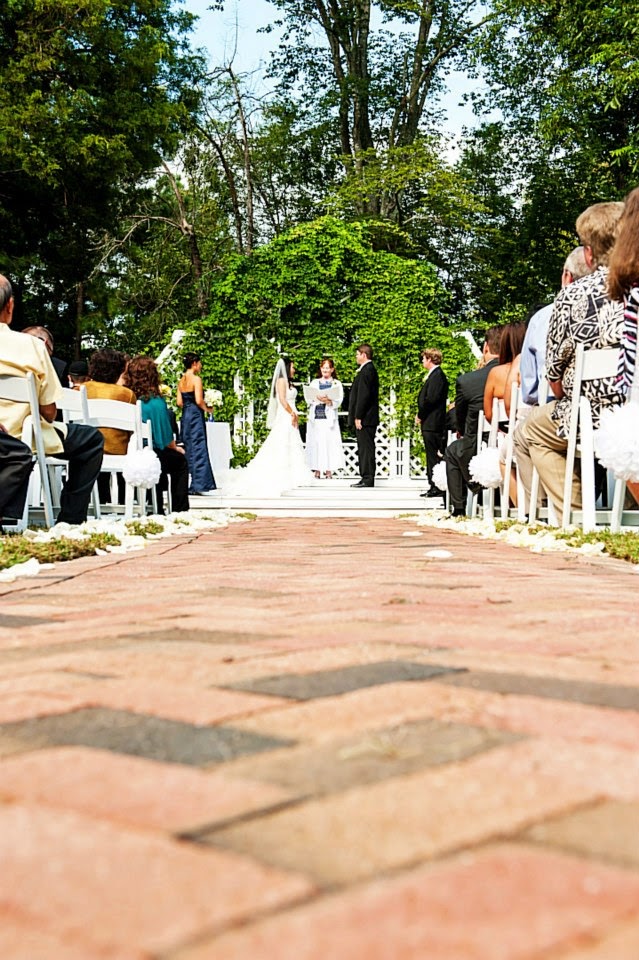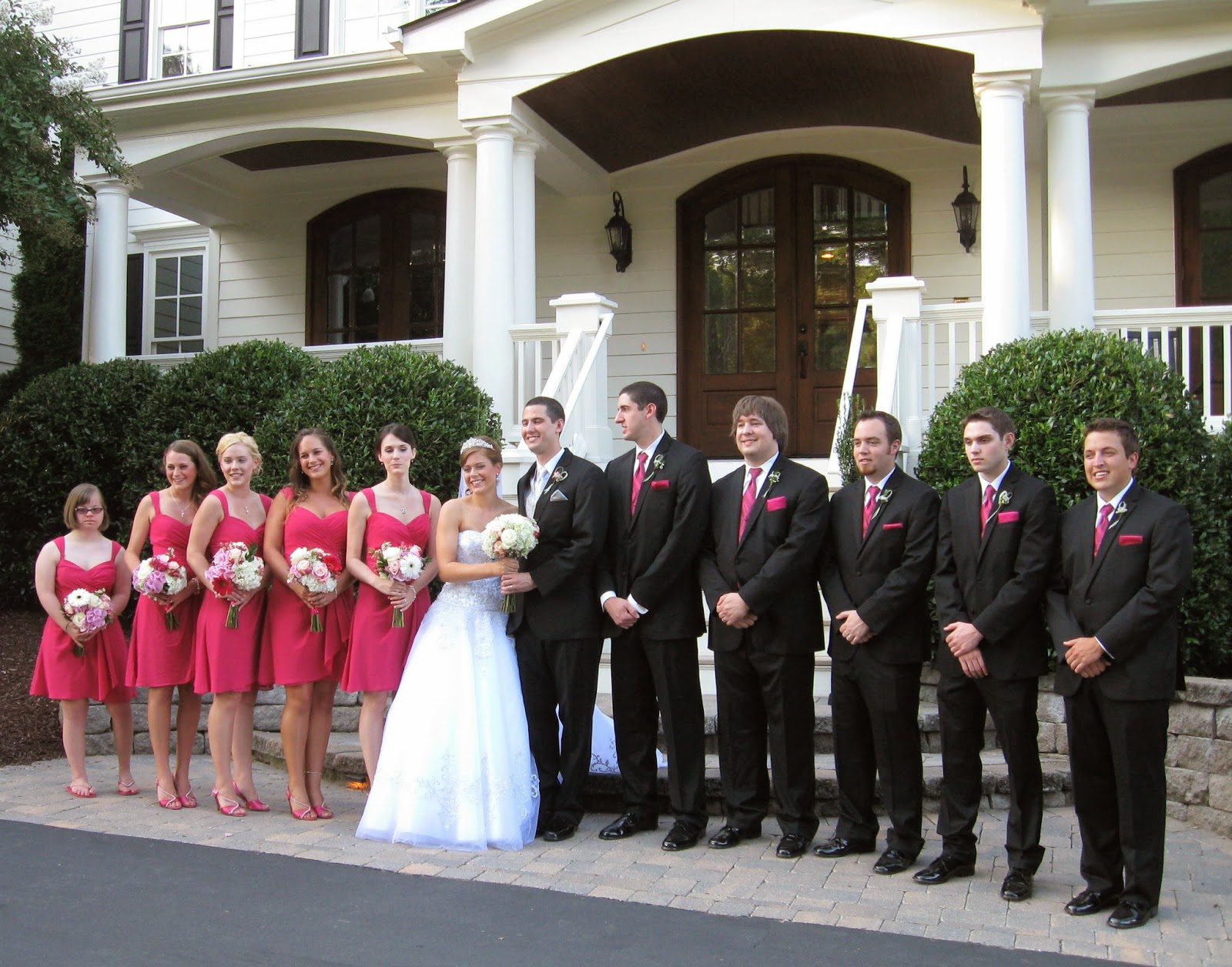Photo by Giphy.com
Eloping at city hall may seem like a sign of love so true and
everlasting that there’s no need to muddle it with elaborate wedding plans, but new research points
to another finding: that having a formal wedding — the larger the better — may
lead to a happier marriage down the road.
“We know from social psychology research that people like to be
consistent, so making a public declaration of commitment may help people follow
through on their commitments,” Galena K. Rhoades, co-author of the study,
released by the National Marriage Project at
the University of Virginia, told Yahoo Health in an email. “This finding may
also reflect that couples who have stronger communities and greater social
support tend to do better,” she said.
The study, co-authored by Rhoades and Scott M. Stanley, both
University of Denver research associate professors of psychology, was based on
new data from the Relationship Development Study,
funded by the National Institute of Child Health and Human Development. They
looked closely at 418 new marriages, analyzing the history of the
relationships, prior romantic experiences, and the reported quality of the
couples’ marriages.
“Most of the individuals who married over the course of our study,
89 percent in all, reported having had a formal wedding. Those who did reported
higher marital quality than those who did not,” the researchers wrote.
In the study, having more guests at a wedding was associated with
higher marital quality. To illustrate this association, researchers created
groups of those who had weddings with 50 or fewer, 51 to 149, or 150 or more
guests. Of those with 50 or fewer attendees, 31 percent had particularly high
marital satisfaction; those percentages rose to 37 percent in the 51-to-149
attendees category, and 47 percent for those who had had 150 or more people at
their wedding.
“Small or large, wedding ceremonies also reflect and enhance the
community context of marriages. Weddings, after all, are public celebrations
involving family, close friends, and often a wider network of people around a
couple,” they added. “Emile Durkheim, the celebrated sociologist, is famous for
arguing that community, and the rituals associated with collective life, give
meaning, purpose, and stability to social life. The association between having
a wedding and having a stronger, happier marriage could reflect two dynamics in
this context. First, weddings may foster support for the new marriage from
within a couple’s network of friends and family. Second, those who hold a
formal wedding are likely to have stronger social networks in the first place.”
A formal wedding with many guests was not the only formula for
success, though. Among the other findings:
• Those who had had more romantic experiences, such as having had
more sexual or cohabiting partners, were less likely to forge a high-quality
marriage than those with a less complex romantic history — which might seem
counterintuitive. “It is surprising,” Rhoades said. “In most parts of our
lives, more experience is better, but here we found the opposite. We think that
more relationship experience may give people a greater sense of what the alternatives
are, which may make them more likely to compare their marriages to past
relationships or experiences. More experience in relationships also means more
experience breaking up, and so it might set up a mindset that future
relationships are also more fragile.”
• Spouses who had kicked off their relationship by “hooking up,”
reported slightly less marital satisfaction than those who had waited a while
before having sex — something that jibes with other past research, such as a 2012 study that found that women who waited a
whopping 182 days before having sex with their partner reported better intimacy
and social support in their relationships.
• Couples that “slid” into living together rather than talking it
out and making a conscious, definitive decision about cohabiting had slightly
lower marital quality later on.
But all is not lost, Stanley noted, if you’ve already set up your
present marriage to be seemingly less successful than it could have been — at
least according to these findings. “No one is doomed because of their
past,” he told Yahoo Health. “Anyone can start going a bit slower, and start
making decisions about important aspects of relationships — especially
important relationship transitions — and improve their odds of making an
existing relationship better, or finding the best partner for themselves in the
future.”








No comments:
Post a Comment